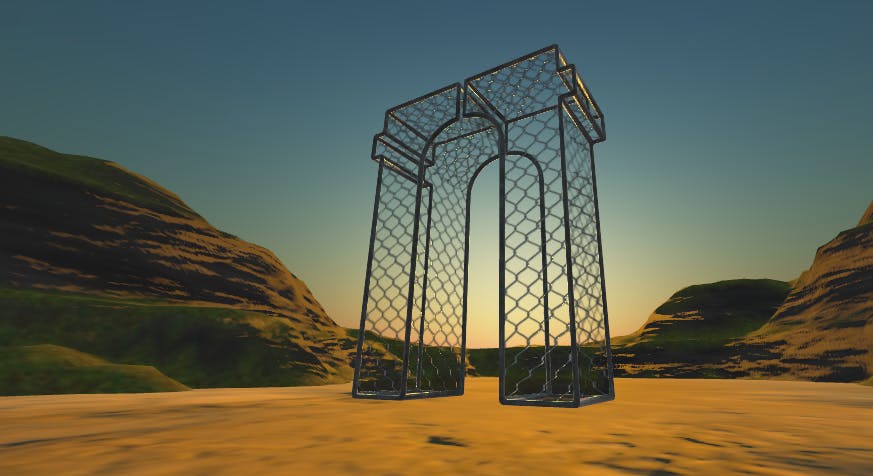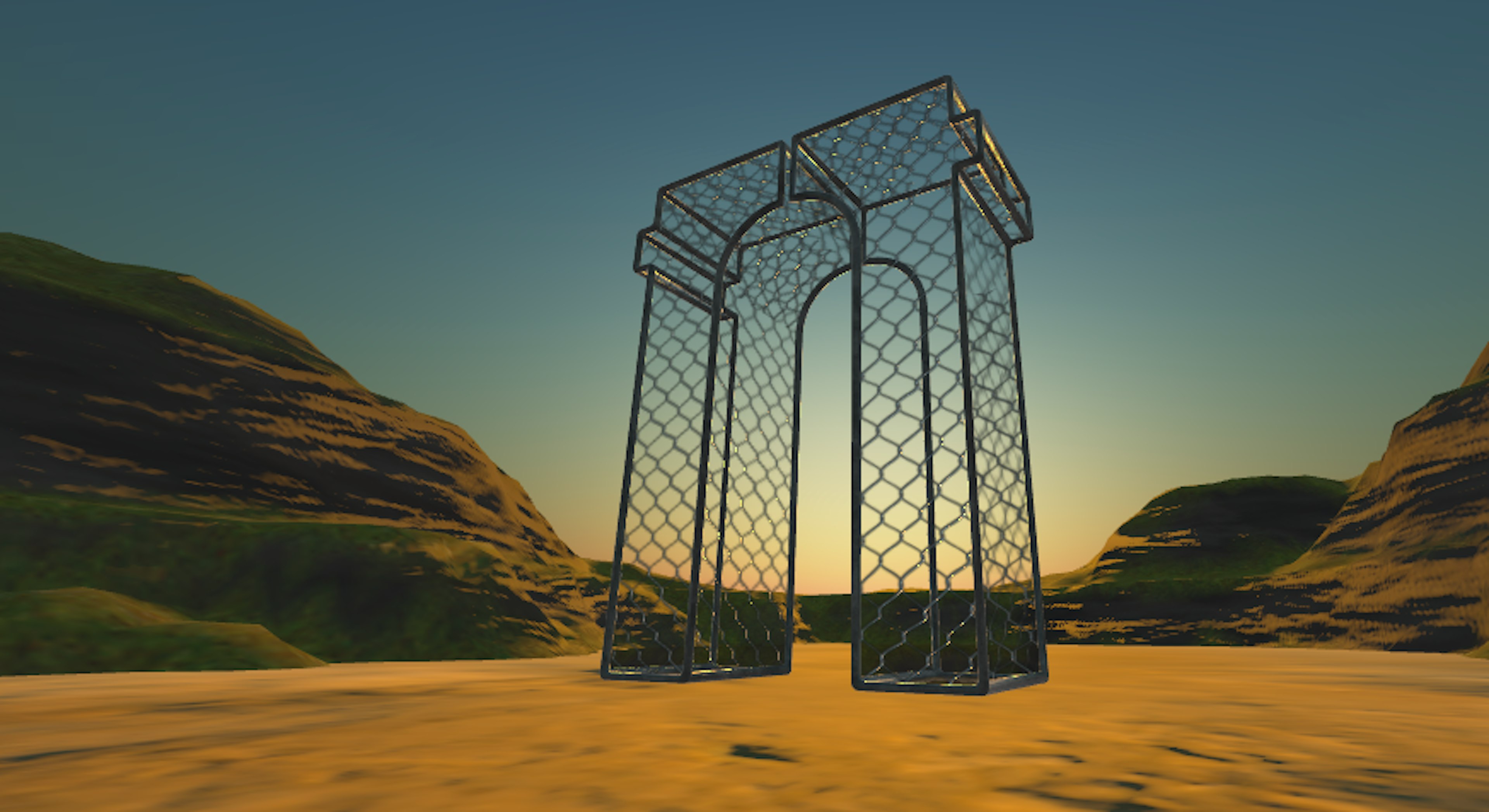A Virtual Monument


A Virtual Monument: If once we ever were was a virtual monument featured in the Garden del Rio Grande on view at Ars Electronica Festival 2020.
A Virtual Monument
Jaime Carrejo
If once we ever were is a virtual monument by Denver-based artist Jaime Carrejo featured in the Garden del Rio Grande on view at Ars Electronica Festival 2020. The towering sculpture forms a hollow triumphal arch constructed from chain-link fencing. Located along the Rio Grande, a river that creates a natural border between the United States and Mexico, the work serves as an acknowledgment of border security and immigration. In the U.S., immigrants play an instrumental role in building and sustaining the country’s economy and infrastructure. Yet, issues surrounding customs enforcement, the abuse of power, and fear of deportation persist in America. In this work, the chain-link fencing acts as a metaphor for boundaries—the delineation of private and public space, the division of geographical borders, and the separation of rights. Brightly colored artificial flowers are scattered at the base of the monument as a tribute to immigrant labor and its positive impact. Carrejo’s digital sculpture draws inspiration from triumphal arches, iconic forms that can be found in diverse locations across the globe from ancient Rome to the gateway of Yellowstone National Park. These traditional arches are erected to commemorate significant persons or events. Here, If once we ever were recognizes immigrants’ ongoing contribution to our communities in the U.S. and around the world.
In addition to experiencing this monument, viewers can explore the surrounding virtual environment. Visitors are invited to walk through this imagined small town along the Rio Grande where they can visit the Black Cube shipping container and a nearby casita. The photographs inside of the shipping container document the sculpture’s original display in front of the Colorado Convention Center in 2019. Inside the pink casita, paintings by Carrejo are on view and helpful online resources are available for asylum seekers and immigrants.
Garden del Rio Grande is curated by Emilie Trice and highlights contemporary and new media artwork being produced in response to current and ongoing issues—political, environmental, and existential—playing out across the region around the Rio Grande River, which runs from central Colorado along the U.S./Mexico border to the Gulf of Mexico. The garden contemplates how technology can reconnect us to the land and amplify indigenous voices, while questioning to what extent can art and design fortify sustainable ecologies.
This work is curated by Cortney Lane Stell and produced by Black Cube. Special thanks to Emilie Trice for inviting us to participate and to Scott McKinney for designing this virtual version of Jaime Carrejo’s monument.
If once we ever were was originally conceived and produced by Black Cube in collaboration with the Denver Theatre District as part of a wider project titled MONUMENTAL that took place in Denver, Colorado in 2019. Learn more here.
